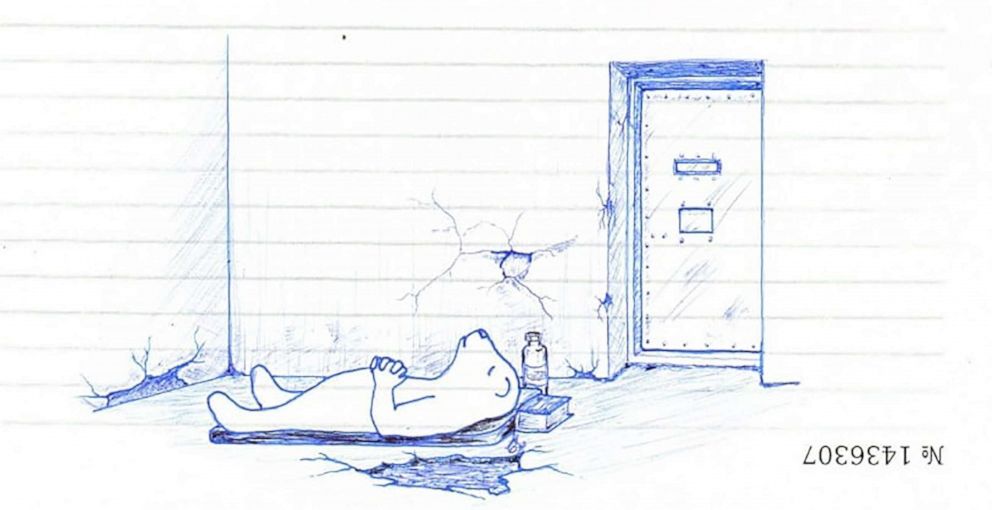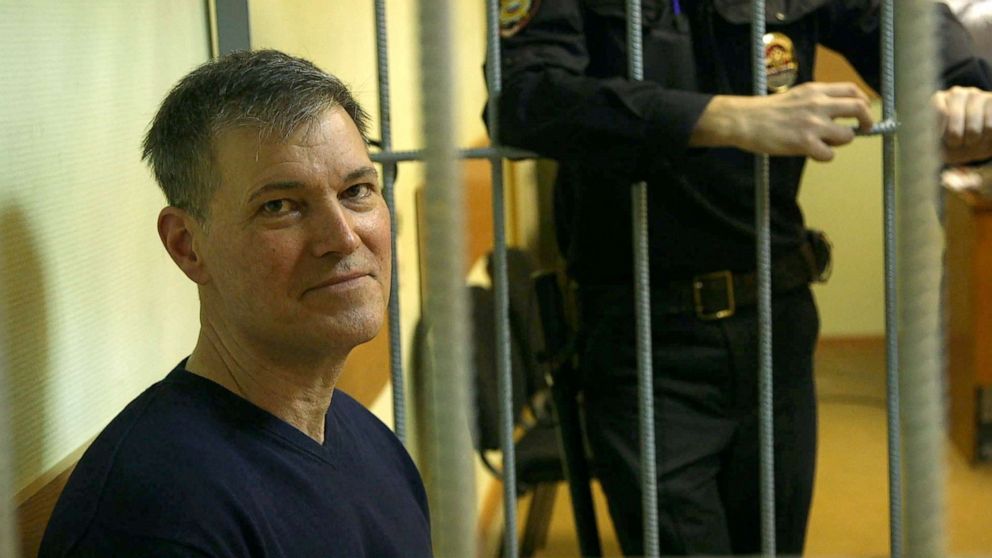American freed after 2 years in a Russian jail on dubious drug charges, still in limbo in Moscow
Gaylen Grandstaff was held for almost 2 years over a cleaning product
MOSCOW -- An American man who was unexpectedly freed after spending almost 2 years in a Russian jail while on trial over a cleaning product is still unable to leave Russia 9 months after he was let go and still faces the prospect that he could be returned to prison.
Gaylen Grandstaff, a 54-year-old English teacher from Texas was arrested in June 2017 at his home in Moscow after he ordered a metal solvent cleaner from a Chinese website. The cleaner turned out to contain gamma-butyrolactone or GBL, an industrial solvent that is used as an illegal party drug or sometimes in body-building and which is banned in Russia and many other countries as a narcotic.
Grandstaff, who suffers from Crohn's disease, said he was upsold the cleaner while buying medicine for his illness and had no way of knowing it contained GBL. Russian police nonetheless chose to bring a crude case against him, charging Grandstaff with large-scale drug smuggling, an exceptionally harsh offense that carries a maximum possible sentence of 20 years in prison.
For 608 days he was kept in pretrial detention in Moscow, becoming a victim of the Russian justice system, where less than 1% of criminal trials end in acquittal and defendants are effectively presumed guilty.
Grandstaff became one of the very few Americans to spend significant time inside Russian jails. He was kept in grim conditions, harassed, denied medical attention and attacked by inmates. Isolated and forbidden from writing to his wife Anna in English, he turned to illustrating his prison life for her by drawing himself as a cartoon bear enduring his experiences.
ABC News chronicled Grandstaff’s ordeal in a short film earlier this year, detailing his mistreatment in prison and finding signs that police were manufacturing parts of the case against him.
In March, there was a stunning reversal -- a judge abruptly acknowledged the problems with the prosecution’s case and ordered Grandstaff released. He was freed in the courtroom and walked out from there.
Only 0.43% of criminal trials in Russia end in acquittal -- according to an analysis by Proekt.media of statistics from Russia's Supreme Court -- making Grandstaff’s release extraordinary. He credited his release to his strong defense and also to the news media, including ABC News, which had attended hearings for months and submitted questions to authorities.
But it was not, however, the end of the story. Prosecutors appealed the decision and now, months later, a court is scheduled to rule on it. If the judge accepts the appeal, Grandstaff could be returned to jail and the trial against him would recommence.

A judge at Moscow City Court on Wednesday re-scheduled the appeal hearing for Dec. 9 after Grandstaff’s lawyers were unable to attend.
Grandstaff and his lawyers have been waiting months for the appeal, which is routine -- prosecutors challenge most rulings that go against them. But there is still a chance Grandstaff could be sent back to jail.
In court on Wednesday, Grandstaff said he was calm, despite his fate being still in the balance.
“I’m like “What will it change?” I can either enjoy every moment I’m out or I can be all on edge and stressed out and not enjoy it, and then what if they throw me back in?” said Grandstaff, who was walking with a cane after recovering from knee surgery froman injury he sustained in jail. “It’s kind of like getting on a plane—some people are really afraid to fly. Me, I know I can’t change it.”
It is part of the limbo Grandstaff has faced since his release in March. For almost 9 months he has been unable to leave Russia because the case against him is still open as prosecutors have refused to drop it.
In Russia, when a judge finds prosecutors have gathered insufficient evidence to make a verdict, they can send a case back to the Prosecutor’s Office for further investigation. This is what happened in Grandstaff’s case, where the judge suddenly ruled prosecutors had failed to gather basic evidence, even though he had been held for almost 2 years in detention.
Such rulings usually amount to a tacit acquittal, legal experts have told ABC News, but not always. And in the meantime, Grandstaff can only wait as the prosecution shows no urgency to resolve his case. By law, the appeal against his release should have happened months earlier, according to Grandstaff’s lawyer Anton Emelchenko, but authorities ignored deadlines to hold a hearing.
Grandstaff has also been left in an immigration grayzone. His visa expired while he was in jail and authorities have refused to give him a new one, meaning he is forbidden from working.

The treatment of Grandstaff following his release highlights another routine injustice in the Russian judicial system, where prosecutors are allowed to let cases drag on unresolved for years, as judges provide little check on them. Grandstaff has now endured almost 3 years of, first, jail, and now, legal limbo -- despite a judge ruling police never had sufficient evidence to bring a case.
Nor is it even clear that if the court now upholds the original decision, Grandstaff’s ordeal will be over. That would theoretically send the case back to the Prosecutor's Office for further investigation, where prosecutors could simply leave the case open again, dragging it out for months more.
"This won't be over," Grandstaff said after his release in April, "until my feet are back on American soil."




